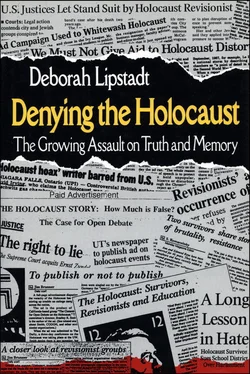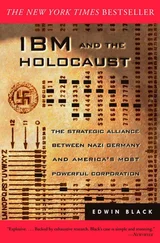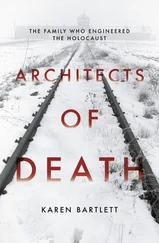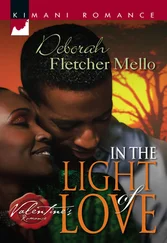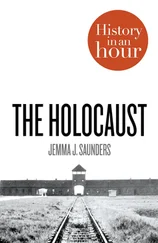In another debasing of history, serious credence has been given to reverse racist charges about white scholarship. Some extremist Afrocentrists, who rightfully assert that Africa’s role in shaping Western civilization is too often ignored, would have us believe that the basis of all intellectual and scientific thought as we know it originated on that continent. Leonard Jeffries, professor of Afro-American studies at New York’s City College, has declared blacks to be “sun people” and whites “ice people.” All that is warm, communal, and full of hope comes from the former; all that is oppressive, cold, and rigid from the latter. {71} In these instances, history is rewritten for political ends and scientific historiography is replaced, in the words of Henry Louis Gates, Jr., professor of Afro-American studies at Harvard, with “ideological conformity.” {72} Scholars who might once have dismissed these outlandish views feel compelled to treat them as having some validity.
These attacks on history and knowledge have the potential to alter dramatically the way established truth is transmitted from generation to generation. Ultimately the climate they create is of no less importance than the specific truth they attack—be it the Holocaust or the assassination of President Kennedy. It is a climate that fosters deconstructionist history at its worst. No fact, no event, and no aspect of history has any fixed meaning or content. Any truth can be retold. Any fact can be recast. There is no ultimate historical reality.
Holocaust denial is part of this phenomenon. It is not an assault on the history of one particular group. Though denial of the Holocaust may be an attack on the history of the annihilation of the Jews, at its core it poses a threat to all who believe that knowledge and memory are among the keystones of our civilization. Just as the Holocaust was not a tragedy of the Jews but a tragedy of civilization in which the victims were Jews, so too denial of the Holocaust is not a threat just to Jewish history but a threat to all who believe in the ultimate power of reason. It repudiates reasoned discussion the way the Holocaust repudiated civilized values. It is undeniably a form of antisemitism, and as such it constitutes an attack on the most basic values of a reasoned society. Like any form of prejudice, it is an irrational animus that cannot be countered with the normal forces of investigation, argument, and debate. The deniers’ arguments are at their roots not only antisemitic and anti-intellectual but, in the words of historian Charles Maier, “blatantly racist anthropology.” {73} Holocaust denial is the apotheosis of irrationalism.
Because the movement to disseminate these myths is neither scholarship nor historiography, I have chosen to eschew the term revisionism whenever possible and instead to use the term denial to describe it. The deniers’ selection of the name revisionist to describe themselves is indicative of their basic strategy of deceit and distortion and of their attempt to portray themselves as legitimate historians engaged in the traditional practice of illuminating the past. For historians, in fact, the name revisionism has a resonance that is perfectly legitimate—it recalls the controversial historical school known as World War I “revisionists,” who argued that the Germans were unjustly held responsible for the war and that consequently the Versailles treaty was a politically misguided document based on a false premise. Thus the deniers link themselves to a specific historiographic tradition of reevaluating the past. Claiming the mantle of the World War I revisionists and denying they have any objective other than the dissemination of the truth constitute a tactical attempt to acquire an intellectual credibility that would otherwise elude them.
———
Revisionism is also the name given to a more contemporary approach to historical research. Associated with the noted historian William Appleman Williams, a past president of the Organization of American Historians, it addresses itself to questions of American foreign policy particularly as they relate to the origins of the Cold War and the conflict between the West and the Communist world. Because this form of revisionism is critical of American foreign policy, which it sees as motivated by a desire for hegemony via open-door imperialism, it is a useful model for the deniers. {74} While many historians strongly disagree with its particular bias, all agree that for the “Wisconsin school,” as Williams’s followers came to be known, and its descendants, the canons of evidence are as incontrovertible as they are for all other historians. In contrast, evidence plays no role for deniers.
Finally I abjure the term revisionist because on some level revisionism is what all legitimate historians engage in. Historians are not just chroniclers—they do not simply retell the tale. Each one tries to glean some new insight or understanding from a story already known, seeking some new way of interpreting the past to help us better understand the present. That interpretation always involves some constant “re-visioning” of the past. By its very nature the business of interpretation cannot be purely objective. But it is built on a certain body of irrefutable evidence: Slavery happened; so did the Black Plague and the Holocaust.
In order to maintain their facade as a group whose only objective is the pursuit of truth, the deniers have filled their publications with articles that ostensibly have nothing to do with World War II but are designed to demonstrate that theirs is a global effort to attack and revise historical falsehoods. Articles on the Civil War, World War I, and Pearl Harbor are included in their journals as a means of illustrating how establishment historians, with ulterior political motives, have repeatedly put forward distorted views of history. The deniers aim to undermine readers’ faith in “orthodox” historians’ commitment to transmitting the truth. They argue that this tactic of distortion by “court historians” for political means reached its zenith in the Holocaust “myth.”
———
What claims do the deniers make? The Holocaust—the attempt to annihilate the Jewish people—never happened. Typical of the deniers’ attempt to obfuscate is their claim that they do not deny that there was a Holocaust, only that there was a plan or an attempt to annihilate the Jewish people. {75} They have distorted and deconstructed the definition of the term Holocaust. But this and all the ancillary claims that accompany it are embedded in a series of other arguments. They begin with a relatively innocuous supposition: War is evil. Assigning blame to one side is ultimately a meaningless enterprise. Since the central crime of which the Nazis are accused never happened, there really is no difference in this war, as in any other, between victor and vanquished. {76} Still, they assert, if guilt is to be assigned, it is not the Germans who were guilty of aggression and atrocities during the war. The real crimes against civilization were committed by the Americans, Russians, Britons, and French against the Germans. The atrocities inflicted on the Germans by the Allies were—in the words of Harry Elmer Barnes, a once-prominent historian and one of the seminal figures in the history of North American Holocaust denial—“more brutal and painful than the alleged exterminations in the gas chambers.” {77} Once we recognize that the Allies were the aggressors, we must turn to the Germans and, in the words of Austin App, a professor of English literature who became one of the major “theoreticians” of Holocaust denial, implore them “to forgive us the awful atrocities our policy caused to be inflicted upon them.” {78}
Читать дальше
